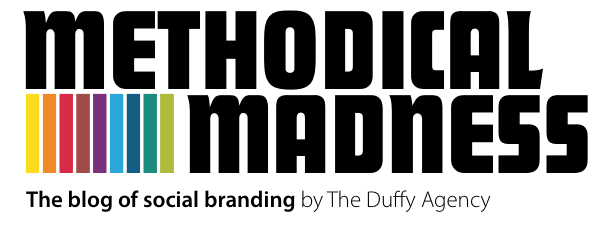Is Twitter really helping your brand or your employee's brand?
 Thursday, July 28, 2011 at 10:00AM
Thursday, July 28, 2011 at 10:00AM Does your company have its own Twitter account, e.g., @AcmeCorp? Or do you rely on an employee to use their own personal Twitter account to act as the voice of your brand? If your answer is the latter, then you could be setting yourself (and your brand) up for a social media fail.
A few weeks ago, we did a social media audit for one of our clients. We asked them about a company Twitter account, and the client told us that that a marketing manager named Susan (not her real name) took care of that. Upon further investigation, we found that Susan was using her own Twitter account to tweet for the company.
Susan is a typical social media guru. She's in her mid to late twenty's (I'm guessing...I didn't ask her exact age) and has been the company's main social media manager for about 3 years. Her bio on her page sings the praises of her company (she describes it as "fabulous"). Her tweets are centered around her company's industry, as well as social media in general. She engages with other Twitterers and gets retweeted often by a core group she interacts with the most. All-in-all, she if offering great content to her followers who number in the low thousands right now.
On the surface, you may not think there is anything wrong with this. But here's the rub: what happens when she leaves the company? And according to statistics from the Department of Labor, she will. In 2010, the average years of tenure with a company for a woman her age is 3 years. In fact, since the median years a woman over 25 stays in one job is 5.0 years, she will probably have up to 7 different jobs in her lifetime.
Although her followers may know she works for a certain company, her face and name are splattered across the company's Twitter account. The result is that Susan is building social equity for herself and not for her company's brand. So what happens to all her followers when she leaves the company? Most likely she will take them with her—and continue building her personal brand at another company. (Btw, for more information on personal branding, check out How to Manage Your Personal Brand by Sean Duffy on TalentZoo.com)
So what is a company to do?
What we told this client was that they had to create a social media policy that protected and built equity in their brand and would mitigate any effects if an employee left.
Step 1
Create a brand or company account (E.g., @AcmeCorp). This would be the main account the brand would tweet from.
Step 2
We also suggested our client create Twitter handles for relevant employees (e.g., @Susan_AcmeCorp) that the company issues. Our client would have the password and more or less "own" the account. The policy should further state that this is the only account they can tweet from during work hours.
Step 3
If they leave the company, our client will review their followers and make sure their company account is following all the employee's followers. Then they can cancel the ex-employees account and not lose the social equity.
Developing a social media policy is not an easy task. It takes balance. Too light-handed and it amy not protect your brand. Too heavy-handed and employees may start feeling like Big Brother is lurking over their shoulder. However, without a social media policy to addresses these statistically-likely scenarios, you may find out—too late—that your employees have spent more time building their own brands and not yours.
What do you think? How can companies safeguard their social brand equity without being too oppressive.
Kevin Duffy is the Creative Director for The Duffy Agency's Boston office.


Reader Comments (2)